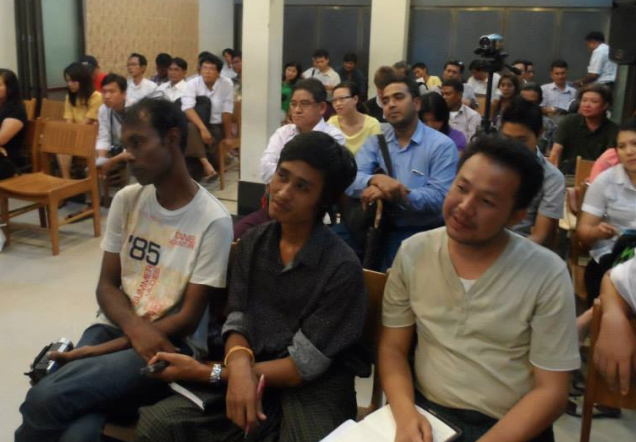
As the military regime in Myanmar inches ahead with democratic reforms, human rights workers are exploring forms of transitional justice for the victims. And they're getting a little help from their friends in Cambodia.
The Network for Human Rights Documentation-Burma (ND-Burma) is sending a group of volunteers to Cambodia in mid-August to study how the atrocities of the Pol Pot regime have been documented. The visit follows a meeting between Cambodian documentation workers and Burmese former political prisoners and opposition politicians in the former Burmese capital Yangon in July.
This year, Myanmar's relations with the world community have improved rapidly. After decades of military rule, the regime has announced a series of amnesties for political prisoners, while the European Union and Washington have lifted most international sanctions against the country.
But in their quest for transitional justice, ND-Burma is reluctant to push too hard. When the group launched what it called the ‘Unofficial Truth Project’ in July, coordinator Han Gyi told Cambodia Daily the project's name was carefully chosen to avoid sending a threatening message to those in government who were part of the previous regime.
At the event in Yangon (see photo), visiting workers from Documentation Center-Cambodia explained how the post-conflict experience in their country could be applied to the situation in Myanmar. Speakers gave their Burmese audience a brief history of the Khmer Rouge regime and sketched efforts to create a Cambodia Truth Commission. They also explained the workings of the Extraordinary Chambers in the Courts of Cambodia.
DC-Cam workers also met with members of Myanmar's National League for Democracy and other opposition groups.
Despite recent reforms, human rights violations persist in Myanmar. In the past year, more than 200 people have been killed in religious clashes and more than 150,000 have been displaced—most of them stateless Muslims known as the Rohingya.
(Photo: website ND-Burma - http://www.nd-burma.org/)
